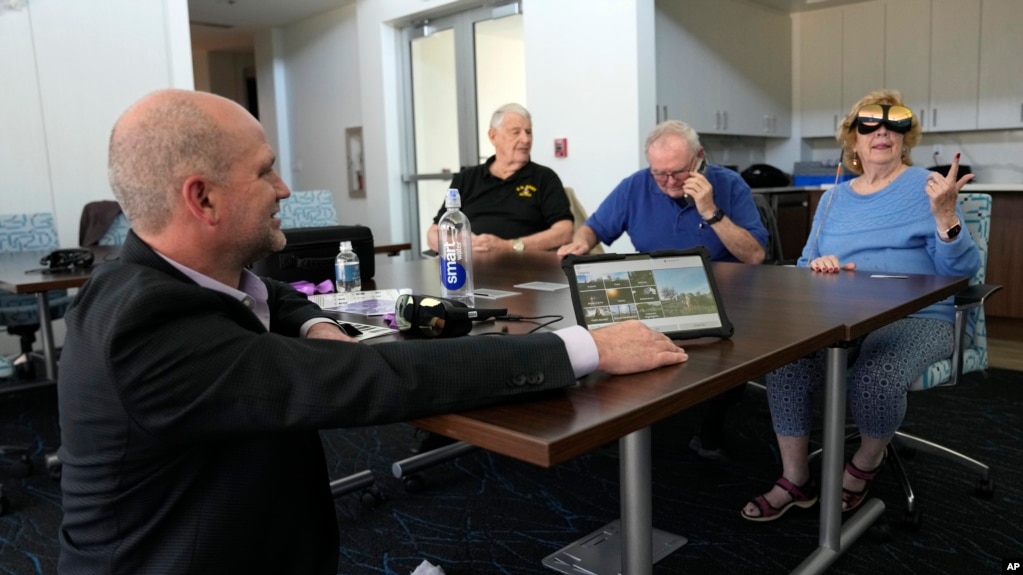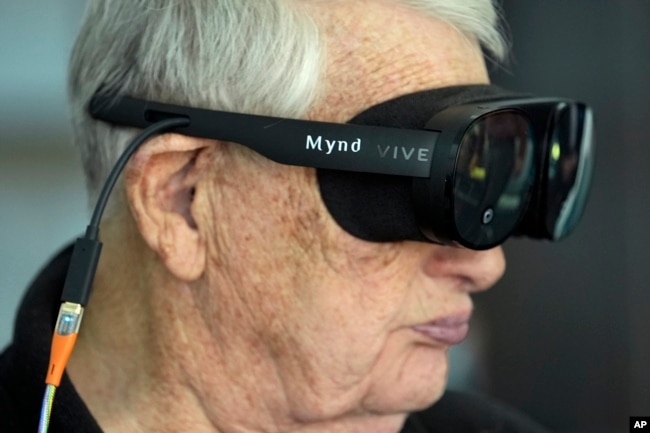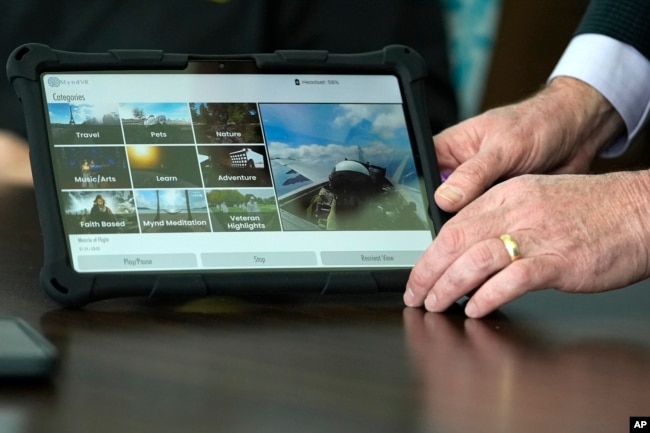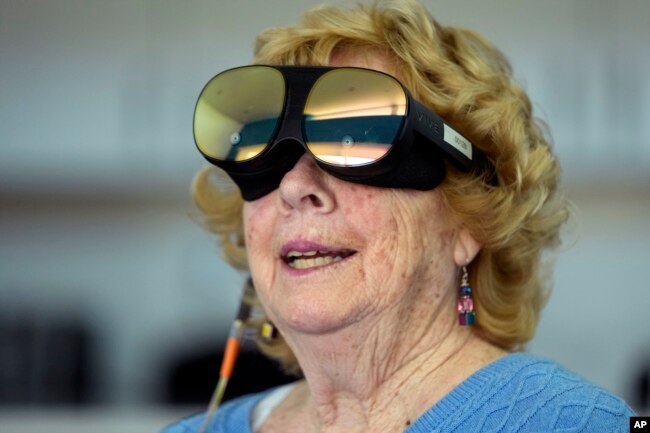AUDIO
Study Finds Majority of Retired People Enjoy VR

A new study found that a majority of retired people who experienced virtual reality (VR) said they liked using the technology.
The study is part of an effort that aims to find ways older adults, known as seniors, can use VR systems. Earlier research has shown the technology can improve emotional health and reduce loneliness in some individuals. It might also help dementia patients better deal with their condition.
During the study, VR systems were introduced in 17 different retirement communities across the United States. A total of 245 people – between the ages of 65 and 103 – took part in the experiment.
The seniors chose from different VR environments offering digital experiences that lasted several minutes. They wore headsets providing a full 360-degrees of sights and sounds to recreate realistic digital environments.

Retired Army Col. Farrell Patrick, 91, wears a Mynd Immersive virtual reality headset at John Knox Village, Wednesday, Jan. 31, 2024, in Pompano Beach, Fla. (AP Photo/Lynne Sladky)
Examples of the digital experiences included parachuting, riding in vehicles, watching music performances, playing with animals, or visiting famous places.
The experiments were led by researchers at Stanford University in northern California. The scientists worked on the project with a Texas-based company called Mynd Immersive, which designs VR products for aging people.
The researchers said nearly 80 percent of those taking part in the experiment reported that their emotional state had improved after the VR experience. Nearly 60 percent of the seniors said the VR system also helped them feel less isolated socially.
The team recently published the study results in the publication Cyberpsychology, Behavior, and Social Networking.
The study also collected information from caregivers of people involved in the study. Nearly 75 percent of caregivers said the moods of the seniors improved after using VR. And more than 80 percent of test subjects and 95 percent of caregivers said talking about the VR experience improved relationships with others.

A screen displays categories of experiences that are offered for users of the Mynd Immersive virtual reality program, at John Knox Village, Wednesday, Jan. 31, 2024, in Pompano Beach, Fla. (AP Photo/Lynne Sladky)
Ryan Moore is a doctoral candidate at Stanford University who led the research. He told The Associated Press that for most of the seniors involved, it was their first time using VR. “They enjoyed it,” Moore said. He added, “They were likely to recommend it to others, and they looked forward to doing it again.”
Farrell Patrick is a 91-year-old retired Army officer who took part in the VR experiment. He used to teach computer science at the United States Military Academy at West Point and two private universities as well. Patrick now lives in a retirement community in Fort Lauderdale, Florida.
Patrick experienced the VR flight of a Navy fighter pilot along the coast of Florida. “Oh my God, that’s beautiful,” he told the AP while wearing the VR headset.
Terry Colli is a former public relations director at the Canadian Embassy in Washington, D.C. The 76-year-old told the AP of his 2022 VR experience, “It brought back memories of my travels and...brought back memories of my experience growing up on a farm."

Karen Audet, an 82-year-old retired elementary school teacher, wears a Mynd Immersive virtual reality headset at John Knox Village, Wednesday, Jan. 31, 2024, in Pompano Beach, Fla. (AP Photo/Lynne Sladky)
Anne Selby is a 79-year-old retired counselor and artist. She said her VR experience “stimulated” every area of her brain as well as all the senses. "I particularly enjoyed the ones dealing with pets because I have a cat and I’ve had pets most of my life," Selby said.
The Florida community where Farrell Patrick lives, John Knox Village, has carried out VR experiments with seniors suffering from Alzheimer’s and other forms of dementia. The researchers said the technology helped the individuals remember things from their past that some wanted to share with their caregivers.
Hana Salem, a worker at John Knox, told the AP, “It is like they come back to life when they tell their story.” She added that some dementia patients who normally do not speak a lot, sometimes “perk up” after going through a VR experience.
“They'll start laughing and saying, ‘Ooh, I’m going to catch the butterflies,'" Salem explained. The catching of butterflies is part of a game Mynd Immersive developed to help seniors improve their movements and flexibility as they stand and reach for objects.
Words in This Story
virtual reality (VR) – n. digital environments that can be entered and controlled by humans
isolate – v. to separate someone or something from other people or things
mood – n. the way someone feels at a particular time
recommend – v. suggest something for a particular purpose
counselor – n. someone whose job it is to listen to people and give them advice about their problems
stimulate – v. to make something happen or develop more
perk up – v. to start to feel happy about something
flexible – adj. able to easily move and bend body parts
https://learningenglish.voanews.com/a/study-finds-majority-of-retired-people-enjoy-vr/7496558.html